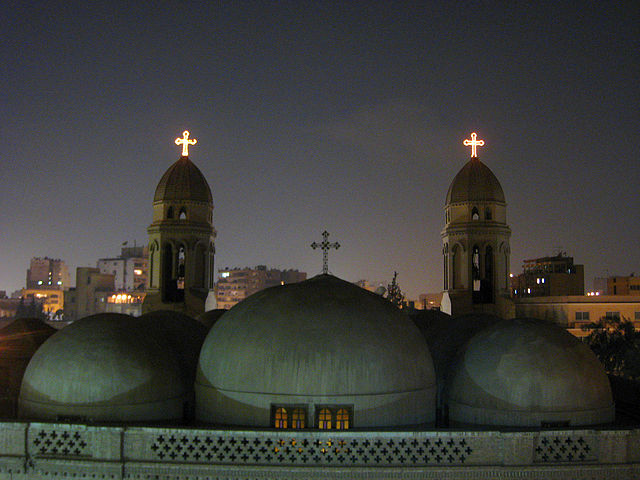Desert in Bloom: Shenouda, Sectarianism, and the Future
 Over the weekend, Coptic Christians all over the world mourned the death of their Church’s leader, known as Shenouda III, Pope of Alexandria. Many in the West would be surprised to learn of the existence of a parallel pope, recognized by his followers to hold the same supreme status ascribed by Catholics to the Pope residing in the Vatican. What is most interesting about this church, however, is that it is centered in one of the world’s most populous Arab countries: Egypt.
One thing that I have emphasized throughout the entries in this column, yet still seems to surprise or be ignored by many, is the religious and ethnic diversity found within the Middle East. At its best, this has lead to expressions of tolerance and even cosmopolitanism; at its worst, it has caused sectarian violence, hatred, and killing.
Over the weekend, Coptic Christians all over the world mourned the death of their Church’s leader, known as Shenouda III, Pope of Alexandria. Many in the West would be surprised to learn of the existence of a parallel pope, recognized by his followers to hold the same supreme status ascribed by Catholics to the Pope residing in the Vatican. What is most interesting about this church, however, is that it is centered in one of the world’s most populous Arab countries: Egypt.
One thing that I have emphasized throughout the entries in this column, yet still seems to surprise or be ignored by many, is the religious and ethnic diversity found within the Middle East. At its best, this has lead to expressions of tolerance and even cosmopolitanism; at its worst, it has caused sectarian violence, hatred, and killing.
In Egypt, history has shown both, and over a fairly short time scale. Pope Shenouda was known as an advocate for religious harmony, even going so far as to stand with Muslims during the scandal of Pope Benedict’s remarks on Islam, and inviting Muslim clerics to celebrate Orthodox Christmas in the Coptic Cathedral with him this year (his invitation was accepted). To be sure, there have been incidents of violence, including attacks on churches as well as rioting that resulted in the massacre of around 23 Copts in 2000, and there has long been the political and social tension that sometimes manifests within minority groups. But for the most part, it seems that the level of violence we now see on a regular basis is much higher than than what the status quo seemed to be for many years.
Certainly, the obvious connection to be drawn from the increasing number of incidents is to the increasing desperation of the impoverished populace and increasing radicalization of fundamentalist Muslims in the country. Both of these conditions were not inevitable, but were the result of economic and political policies that increased inequality and eradicated all opposition but the most extremist bogeymen. This raises the possibility that neither the ethnic tension nor violence was inevitable.
The explosion of the fuse that was the sum of these conditions resulted in the Egyptian revolution, which may or may not have given birth to a future of democratic pluralism. The extent to which sectarianism can be conquered -- not only in Egypt, but of course in Syria, which harbors many Christians, among them the only villages that still speak Jesus’ original Aramaic language, along with its Alawite, Druze, and majority Sunni populations, and more generally the greater Middle East – is very much an open question. The issue of sectarianism is everywhere: it is both within nations, as seen in Lebanon’s struggle to deal with the aftermath of the horrific Lebanese Civil War, as well as between nations, as manifested in the tension between the regional powers Iran and Saudi Arabia.
Many say that sectarianism is too powerful, too ingrained to be eradicated. I think that this view is overly pessimistic. In fact, there is no possibility to move forward without conquering it. The Middle East may (and likely will) face civil strife and even civil or international wars over political and economic causes exacerbated by sectarian strife, but there will come a point in which the only path forward is to shed those biases, The people of the Middle East will be forced to choose to conquer their sectarian history or not. It is my hope, and my expectation, that they will.
